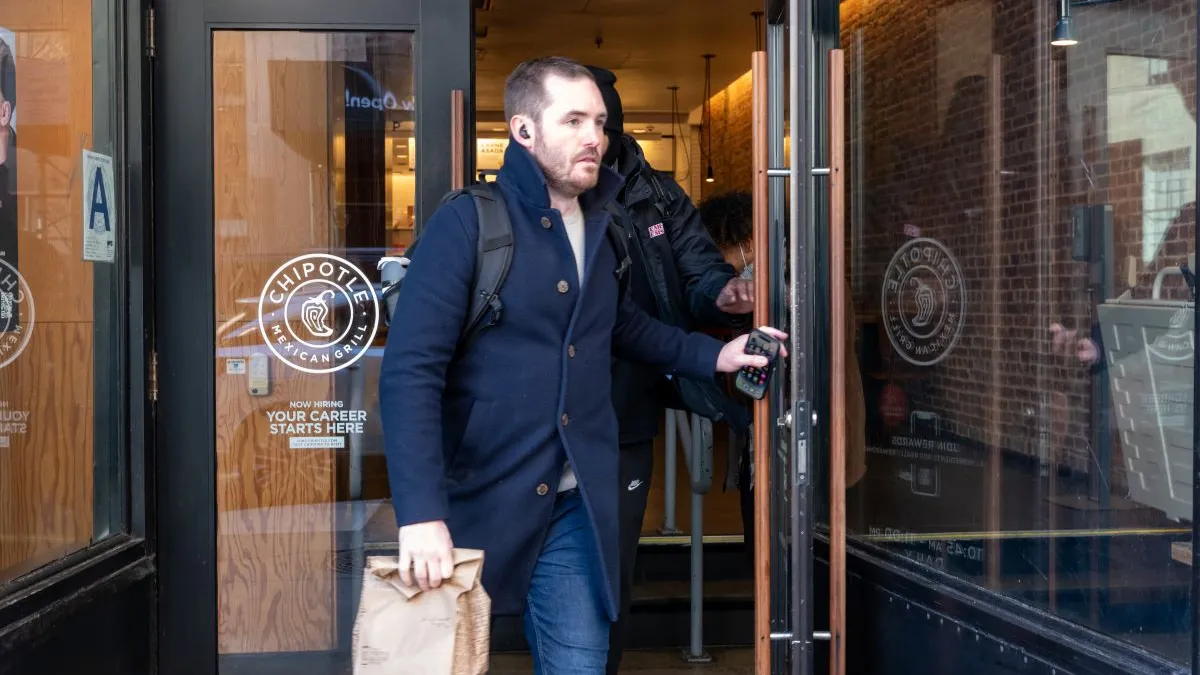Dive Brief:
- National restaurant chain Chipotle will pay $20,000 to settle allegations an assistant manager in Lenexa, Kansas, repeatedly harassed a devout Muslim employee because of her religion, the U.S. Equal Employment Opportunity Commission announced April 1.
- Per the complaint in EEOC v. Chipotle Services LLC, the assistant manager kept asking the employee, who was 19 at the time, to remove her hijab and show him her hair. He allegedly ignored her demands to stop, as well as her explanation of the head covering’s religious significance. Ultimately, he grabbed the hijab and partially removed it, the complaint alleged.
- The employee immediately reported the incident, according to the lawsuit. The next day, she gave her two weeks’ notice, but Chipotle allegedly retaliated against her by not scheduling her again, EEOC said. It sued Chipotle for religious discrimination, retaliation and constructive discharge under Title VII of the Civil Rights Act of 1964 and Title I of the Civil Rights Act of 1991.
Dive Insight:
The settlement, locked in by a court-ordered consent decree, signals to employers EEOC’s continued commitment to enforcing employees’ religious rights in the workplace.
A key part of the settlement centers on practical, hands-on training about prohibited behavior. In particular, under the three-year consent decree, Chipotle must provide live, interactive training on religious discrimination and harassment to both supervisory and non-supervisory employees at eight restaurants in the Lenexa area.
But first, in a roadmap for HR professionals, the consent decree outlines policies and procedures that Chipotle must write in “clear, simple language, without legalese,” and maintain.
At a minimum, the policies have to state Chipotle’s commitment to preventing and correcting religious discrimination and religious harassment, the decree said. They must also provide examples of how individuals who wear hijabs and other religious symbolic clothing should be treated.
Additionally, every six months for the decree’s duration, supervisory employees must participate in one-hour, specialized interactive training, including how to respond to potential discrimination, harassment or other inappropriate conduct they observe or is reported to them.
“No one should be harassed at work because of their religious beliefs or practices, and employers must not permit their employees – especially supervisors – to ridicule or assault workers because of their most deeply held personal beliefs,” Andrea Baran, regional attorney for the EEOC’s St. Louis district office, stated in the release.
Preventing religious discrimination also requires employers, absent undue hardship, to reasonably accommodate an employee’s sincerely held religious belief, practice or observance that conflicts with a work requirement, EEOC guidance explains.
Due to a 2023 U.S. Supreme Court ruling, Groff v. DeJoy, employers face a higher burden establishing undue hardship.
Specifically, under Groff, employers must now show the burden of the requested accommodation “is substantial in the overall context of [its] business,” Duane Morris attorneys Jonathan A. Segal and Adam D. Brown wrote in a November 2023 op-ed to HR Dive.
To get ahead of some of the issues Groff presents, employers may need to institute more rigorous processes for handling religious accommodation requests, Segal and Brown noted.
“Well-crafted polices and practices, developed with the assistance of counsel, can increase the likelihood of compliance and may enable an employer to avoid significant liability,” they said.
In the Chipotle case, the $20,000 payment includes wage and non-wage compensatory damages and attorneys’ fees. Chipotle did not admit to liability.













